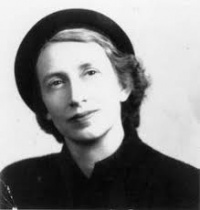Difference between revisions of "Lillian Smith"
From QueerBio.com
| Line 12: | Line 12: | ||
Lilian Smith was a renowned writer who wrote about racism as a white woman in the deep South. Her worked pushed boundaries in its unabashed criticism of segregation and its fervor in dismantling Jim Crow laws. Her work 'Strange Fruit' (1944) dealt with the taboos of interracial romance and was inspired by Billie Holidays song of the same title on anti-black lynchings. The book was even banned in Boston and Detroit at a certain point for its 'lewdness'. Her second book 'Killers of the Dream' (1949) evaluated the contradictions and hypocrisies that existed within southern communities and argued that white identity was built on white supremacy. | Lilian Smith was a renowned writer who wrote about racism as a white woman in the deep South. Her worked pushed boundaries in its unabashed criticism of segregation and its fervor in dismantling Jim Crow laws. Her work 'Strange Fruit' (1944) dealt with the taboos of interracial romance and was inspired by Billie Holidays song of the same title on anti-black lynchings. The book was even banned in Boston and Detroit at a certain point for its 'lewdness'. Her second book 'Killers of the Dream' (1949) evaluated the contradictions and hypocrisies that existed within southern communities and argued that white identity was built on white supremacy. | ||
| + | |||
| + | ==See Also== | ||
| + | |||
| + | * [[Race Activists in the LGBTQ Community]] | ||
==Further Reading/Research== | ==Further Reading/Research== | ||
Latest revision as of 01:03, 26 April 2022
Contents
Country
United States
Birth-Death
1897-1966
Occupation and achievements
Lilian Smith was a renowned writer who wrote about racism as a white woman in the deep South. Her worked pushed boundaries in its unabashed criticism of segregation and its fervor in dismantling Jim Crow laws. Her work 'Strange Fruit' (1944) dealt with the taboos of interracial romance and was inspired by Billie Holidays song of the same title on anti-black lynchings. The book was even banned in Boston and Detroit at a certain point for its 'lewdness'. Her second book 'Killers of the Dream' (1949) evaluated the contradictions and hypocrisies that existed within southern communities and argued that white identity was built on white supremacy.

